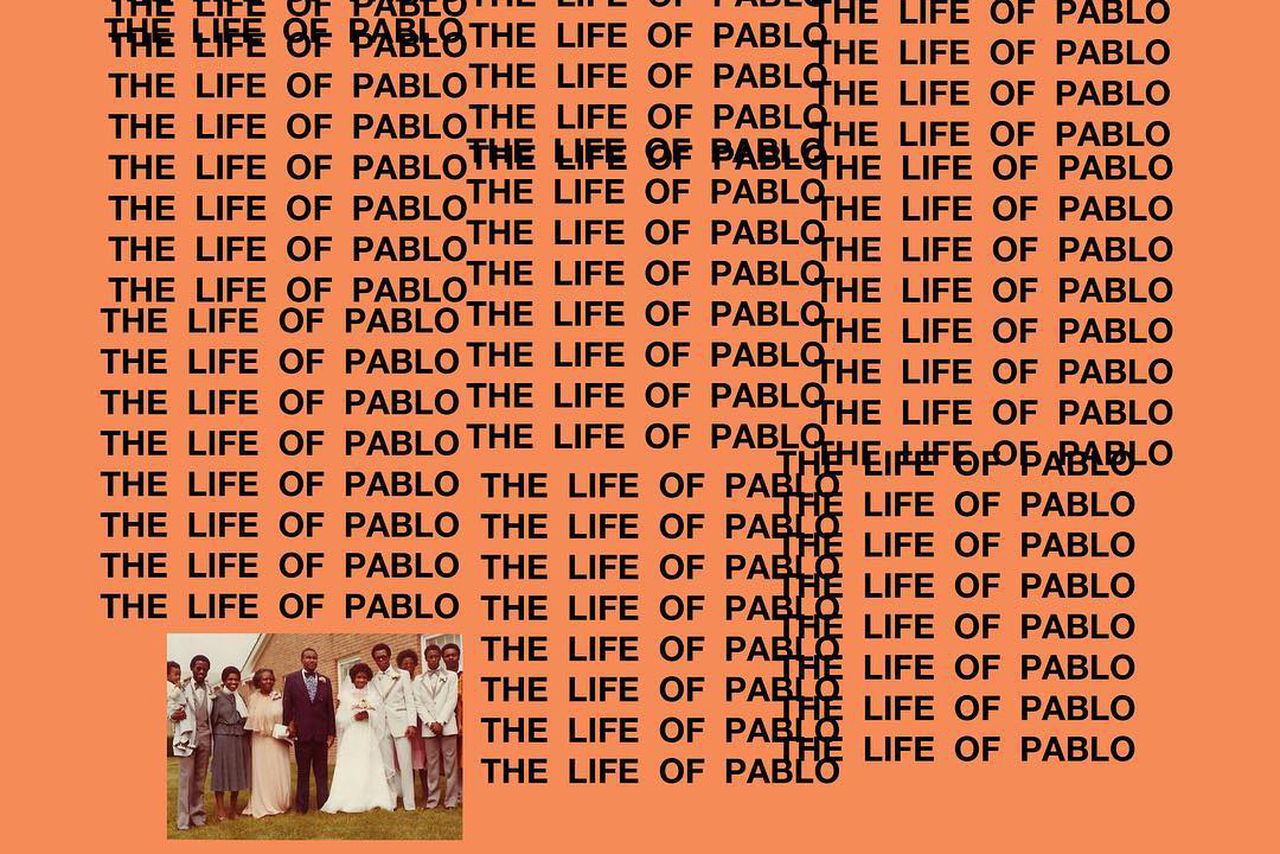Kanye’s previous two albums have
been very coherently conducive to their ideas; while frequently adventurous
with sonic and structural experimentation they ostensibly remain drinking from
the same conceit, somewhat at odds with the scatology of his earlier work. My Beautiful Dark Twisted Fantasy – as I’ve
often recorded in this blog – is a solipsistic self-exploration of egoism so
layered and ambitious it registers as the cumulative Ulysses, Infinite Jest and
Moby Dick to its contemporaries’ airport
paperbacks. An absorbing Freudian goldmine overshadows what is a musically
complex, enormously fun record. Furthermore, Yeezus confronts the precept of Black identity and its tumultuous history
with a lairy aggressiveness that compels and threatens; neither as
sophisticated or as intellectual as last year’s To Pimp a Butterfly (which examined a similar discourse), but more
direct in its often misappropriated, sometimes confused, always justified fury.
Before my first listen of Life of Pablo,
I What’s App’d my friend Nic explaining my curiosity over the subject of Kanye’s
latest homily, as it's evidently his new and abrasive format of composition. Two minutes into ‘Ultralight Beam’ and its gospel choir and
self-aggrandising wordplay reveal little except flirtations with self-parody.
When Chance The Rapper arrives with his perpetually weed-chilled croon, he warbles some thanks to Kanye and congratulates himself on his gorgeous ‘Sunday Candy’ from
last year. But he also observes something we’ve only glimpsed in our fifteen
years of Kanye. He opens with “when they come for you/I will shield your name,”
evoking Kanye’s doubt, fear and paranoia with a nebulous, protective couplet. When
they routinely stress that the Ultralight Beam in question is a “God Dream,” the
emphasis is decisively on Dream. Kanye knows that his fame and infamy is a
goddamn lie and everything could crash in on him at any moment. Even Gods need
friends.
The dichotomy between deity-sized
narcissism and inveterate vulnerability is overpowering. Famous begins as an anthemic self-endorsement of sexual prowess,
Kanye riling up every woman he’s ever slept with and smugly backs himself with Taylor
Swift despite all the melodrama they’ve shared, before transcending into a bellicosely
heartfelt plea, no; a vocalisation of necessity, for authentic love, propelled
by an affectionate, syrupy Rihanna refrain as this nameless idealisation of romance. One
of the few sequences of contentment is the track ‘Waves,’ which Chance now
famously fought to keep on the album. It’s pronounced and adulatory before
abruptly switching to the intimate exposition of “birds can’t fly in a cage.”
It’s a poignant, ephemeral verse, compounded by ‘Waves’ being bookended by the
sneeringly confident put-down ‘I Love Kanye,’ which somehow encapsulates all
the love/hate paradigms which he laboriously provokes into under a minute, and
the jarringly despondent ‘FML,’ a spiralling panic-attack of forgotten
spirituality. These three tracks are roughly six minutes chronologically, but
could legitimately function as a self-contained EP and would still be as
traumatically effective.
This fluctuating juxtaposition is coalesced with the instrumentation, screaming drones and thunderous bassdrums - reminiscent of Yeezus's politically charged adrenaline - bang when Kanye's at his most defensive, while mellifluous synths and iconoclastic, revealing sample choices complement his cathartic disclosures. While Kanye begins defiantly and controlling, the cracks to his diamond-studded fortress are always translucent and ‘Waves’
is the emphatic breach. The two most notable pre-release singles, ‘Real Friends’
and ‘No More Parties in LA,’ are eloquent expressions of not so much pain as exhaustion.
Kanye confesses his anxieties, because he’s just too tired to hide; the gaping
artifice of building sincere relationships in the background of notoriety and
opulence is destructive and impossible. The clever back-and-forth dialogue Kanye employs with
Big Sean in ‘Real Friends’ suggests not only an attempt to, inadequately,
communicate on an emotional level in an established but faltering friendship,
but a sense of desperate isolation, as Big Sean’s distorted vocals ring out as
if on some other sonic plane. Superlative speech and superlative hedonism is
afforded by his stature in celebrity culture, but it’s a deal with the devil,
proffering an inability to connect as a return.
For his impact on rap music and
general pop culture, Kanye is a veritable God; but on Life of Pablo he discloses a precipitous chasm of human insecurity.
Maybe Kanye will have to settle for being merely a demi-god, omnipotent and immortal with the Achilles heel of the capacity to feel; a metaphor aptly
emblematic of his lasting legacy as a beautiful contradiction.

No comments:
Post a Comment